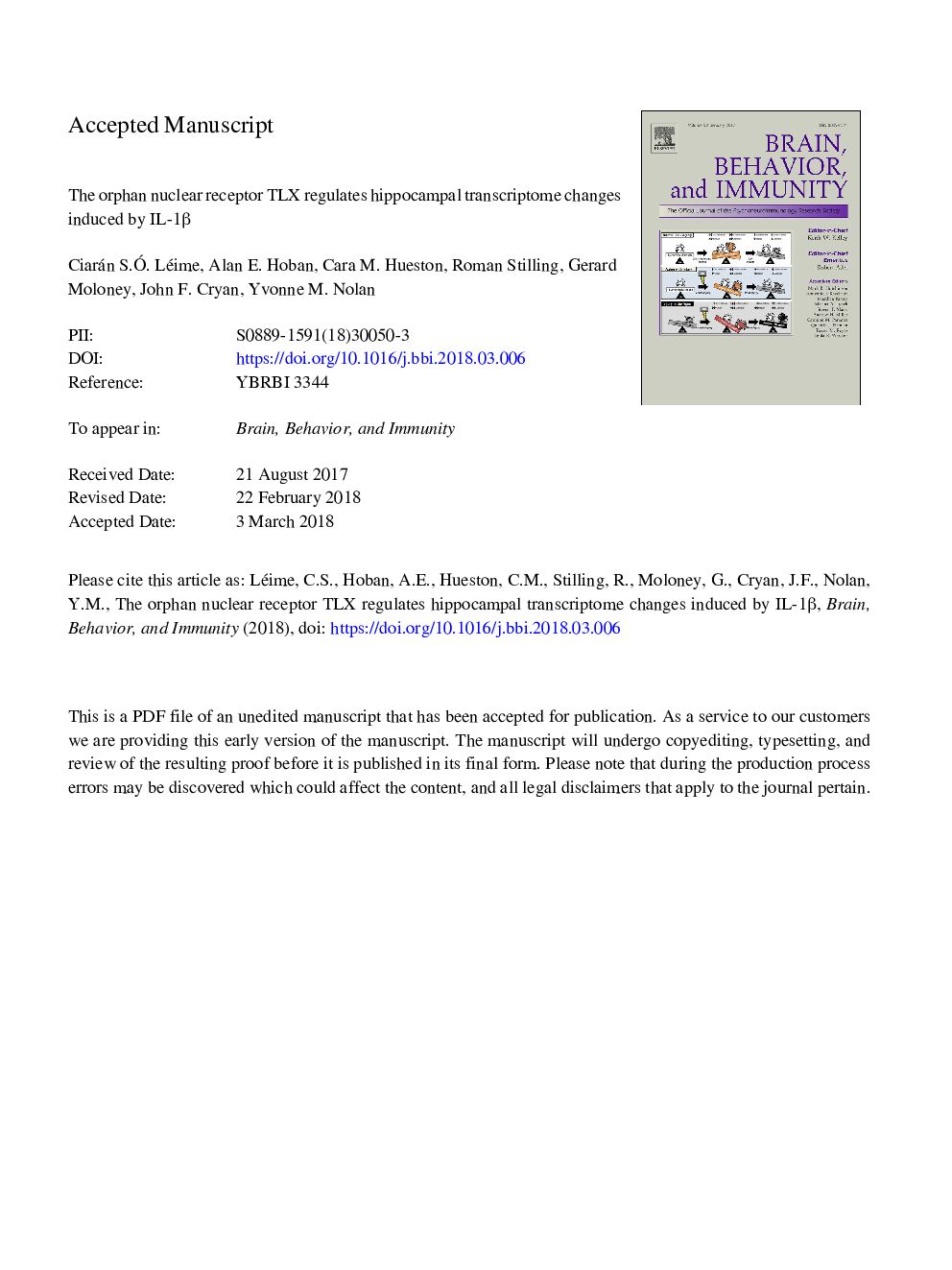| Article ID | Journal | Published Year | Pages | File Type |
|---|---|---|---|---|
| 7279268 | Brain, Behavior, and Immunity | 2018 | 37 Pages |
Abstract
TLX is an orphan nuclear receptor highly expressed within neural progenitor cells (NPCs) in the hippocampus where is regulates proliferation. Inflammation has been shown to have negative effects on hippocampal function as well as on NPC proliferation. Specifically, the pro-inflammatory cytokine IL-1β suppresses NPC proliferation as well as TLX expression in the hippocampus. However, it is unknown whether TLX itself is involved in regulating the inflammatory response in the hippocampus. To explore the role of TLX in inflammation, we assessed changes in the transcriptional landscape of the hippocampus of TLX knockout mice (TLXâ/â) compared to wildtype (WT) littermate controls with and without intrahippocampal injection of IL-1β using a whole transcriptome RNA sequencing approach. We demonstrated that there is an increase in the transcription of genes involved in the promotion of inflammation and regulation of cell chemotaxis (Tnf, Il1b, Cxcr1, Cxcr2, Tlr4) and a decrease in the expression of genes relating to synaptic signalling (Lypd1, Syt4, Cplx2) in cannulated TLXâ/â mice compared to WT controls. We demonstrate that mice lacking in TLX share a similar increase in 176 genes involved in regulating inflammation (e.g. Cxcl1, Tnf, Il1b) as WT mice injected with IL-1β into the hippocampus. Moreover, TLXâ/â mice injected with IL-1β displayed a blunted transcriptional profile compared to WT mice injected with IL-1β. Thus, TLXâ/â mice, which already have an exaggerated inflammatory profile after cannulation surgery, are primed to respond differently to an inflammatory stimulus such as IL-1β. Together, these results demonstrate that TLX regulates hippocampal inflammatory transcriptome response to brain injury (in this case cannulation surgery) and cytokine stimulation.
Keywords
PBSRNAseqTNFFDRSTRINGTlxIL-1βNPCssearch tool for the retrieval of interacting genes/proteinsNeuroinflammationInterleukin-1 betaRNA sequencinglong term potentiationLTPDAVIDpost-natal dayNeural progenitor cellsdentate gyrustumor necrosis factorPhosphate buffered salinefalse discovery rateknockoutwildtypeGene ontologyHippocampusnuclear receptors
Related Topics
Life Sciences
Immunology and Microbiology
Immunology
Authors
Ciarán S. Ã'Léime, Alan E. Hoban, Cara M. Hueston, Roman Stilling, Gerard Moloney, John F. Cryan, Yvonne M. Nolan,
